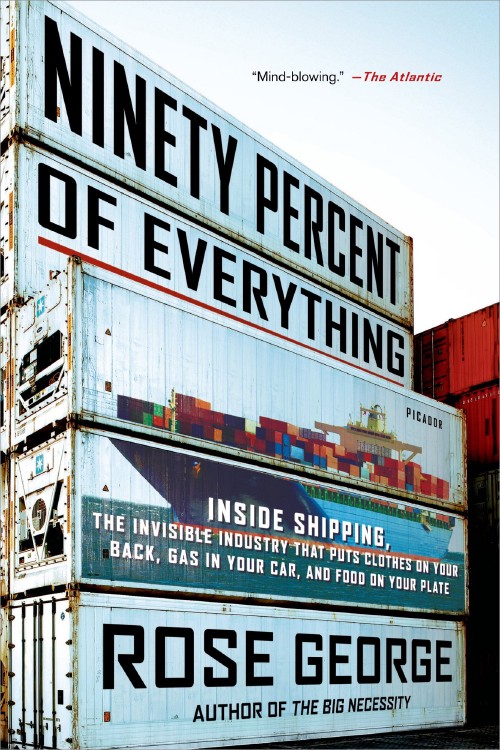For as long as I have memories, I’ve been an insomniac. Well before I hit puberty I remember long nights laying awake in bed, trying to fall asleep. Just an 8 year old kid struggling to rest. Sometime during that period I found a way to make those hours of insomnia productive, developing a habit that stayed with me well into adulthood: imagining all the tragedies I could fathom, then thinking through my best plan of action for dealing with that tragedy. House fires, home invasions, car wrecks, kidnapping, natural disasters, you name it. Anything my brain could imagine as a possibility. I would think about the awful thing, then try to sort out what signals I could use to make sense of the situation, find safety, and help others.
In my 30’s I realized that this habit was a form of anxiety relief. Rather than holding a generalized anxiety about a ton of potentially terrible things,child me was creating plans of action for various scenarios. Only in my 30’s did I really name the fact that I have high anxiety, and I always have. It was also then that I realized that child me had been pretty fucking smart about dealing with anxiety.
(Around the time that I had this self-realization I also figured out that the anxiety was the root cause of my insomnia. I realized that I would get lost in thinking and inadvertantly hold my breath for long periods of time. Once I learned to notice the slow breathing and intentionally focused on regular, deep breaths, I started falling asleep inside of 30 minutes every night.)
Anxiety is a real motherfucker, as anyone who has ever experienced it will tell you. While different people might experience it in different ways, for me it’s always felt like I’m very stressed but there’s no obvious stressor I can point to. My physiological state does not seem to match my conscious state, and that disconnect is what I understand to be “my anxiety.”
The past few years have involved a lot of personal work to better map how anxiety works in my body and to understand triggers that lead to it flaring up. One large example; in these years I’ve developed a personal yoga practice, and in so doing realized that my lower back was inaccessible. With the rest of my body, I could focus on a muscle and tense or relax it as desired. But not with my lower back; I just couldn’t mentally find those muscles to relax them or tense them at all. Slowly, over months I was able to bring them back into my perception and relearn how to integrate them into my conscious self. During that long process, what I realized is that they were inaccessible as an anxiety coping mechanism; when I had gone through some periods of super-high anxiety, my body seems to have dealt with it by shunting it all into my lower back and locking those muscles up as a way of processing the anxiety.
Yoga and integration meant that I was able to release some back pain I’d had for years, which was lovely. But the next time something in my life triggered some anxiety, what I immediately noticed was a return of the pain. The solution to the symptom was yoga, but the solution to the cause was understanding what in life was generating anxiety and addressing that.
Which brings me back to my childhood insomnia. I don’t love that I spent a few decades of my life struggling to sleep and lacking rest, but I do think that I stumbled into a pretty great method for dealing with my anxiety. As a little kid, I intuitively tried to take a generalized feeling (stress about a lot of scary things that seemed somewhat possible) and turn it into a specific course of action for a single scary thing. This process, repeated over years of work, helped me slowly reduce the number of things in life that felt unknown, while also helping me build skills of perception and awareness about the world around me.
Which brings me to the thing that’s been on my mind this week as I’ve been dealing with a lot of anxiety from coworkers as we map out 2024. I feel like the topic of anxiety often (ironically?) generates a good bit of anxiety itself. It’s a mental health topic. High anxiety is the same as high stress—if it continues unaddressed for a long time, it’s very bad for your health. Anxiety is thus widely recognized as a problem to resolved.
I don’t disagree with this, but I worry sometimes that we understand “problem to be resolved” as “symptoms to be addressed.” In this frame, if you’re dealing with a lot of anxiety, the solutions are often self-care oriented. Do yoga, meditation, maybe even take medication. Those responses will 100% address the symptoms of anxiety to some degree and often are necessary to create space for other options.
But only pursuing self-care avoids asking the question I’ve come to believe is most important for me: what is this anxiety telling me?
Little kid me laid in my bed at night, staring out the window and thinking about my house plan and how I would navigate the entire house if it were on fire. I tried every path, hit dead ends, and tried new paths. I thought about how smoke would move through the house and tried to think through what that required me to do (I mapped where my shirts were and how to get to the sink while crawling with my eyes closed, these were extremely detailed plans of action). In all of this, what I was doing was treating a generalized anxiety about “what if my house catches on fire” as a real risk, then figuring out what my anxiety needed to know to relax.
I respected my anxiety as a signal. As having a cause worth investigating. As being a helpful thing, not a harmful thing.
Realizing how helpful this was as a kid (even if done at the wrong times, and with unhelpful results due to the insomnia) has helped me be more intentional about anxiety as an adult.
When I see my coworkers’ anxiety spike, I no longer treat that as a problem to resolve at the symptoms level. Instead, I respect that the intelligent people I’m working with have life experiences and knowledge that is leading them to be stressed about the current situation. Anxiety is high, which means we need to sort through the situation.
Sometimes this just means they are lacking necessary information. Incomplete context can generate stress. But sometimes it means that the situation is bad, and we need to intervene in whatever ways are possible to modify the situation. Addressing the symptoms will not work, it is only by identifying the root causes and changing them that we can actually resolve the anxiety.
To do that, you have to trust that anxiety is a useful signal, and be curious about it. Thanks to little kid me, I am relearning old lessons this year, and finding that I feel far more empowered to change situations to avoid anxiety at all. It’s nice.



